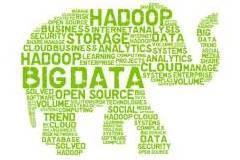Xebia offers Cloudera Developer for Spark & Hadoop Certification Training in Gurgaon, a four-day hands-on training course delivers the key concepts and expertise participants need to ingest and process data on a Hadoop cluster using the most up-to-date tools and techniques. Employing Hadoop ecosystem projects such as Spark, Hive, Flume, Sqoop, and Impala, this training course is the best preparation for the real-world challenges faced by Hadoop developers. Participants learn to identify which tool is the right one to use in a given situation, and will gain hands-on experience in developing using those tools.
Learn how to import data into your Apache Hadoop cluster and process it with Spark, Hive, Flume, Sqoop, Impala, and other Hadoop ecosystem tools.
Training Date: 23rd Aug to 26th Aug,2018
Course Fee: Rs 69,999.00
Course Curriculum:
Introduction to Apache Hadoop and the Hadoop Ecosystem
- Introduction to Apache Hadoop and the Hadoop Ecosystem
- Apache Hadoop Overview
- Data Ingestion and Storage
- Data Processing
- Data Analysis and Exploration
- Other Ecosystem Tools
- Introduction to the Hands-On Exercises
Apache Hadoop File Storage
- Apache Hadoop Cluster Components
- HDFS Architecture
- Using HDFS
Distributed Processing on an Apache Hadoop Cluster
- YARN Architecture
- Working With YARN
Apache Spark Basics
- What is Apache Spark?
- Starting the Spark Shell
- Using the Spark Shell
- Getting Started with Datasets and DataFrames
- DataFrame Operations
Working with DataFrames and Schemas
- Creating DataFrames from Data Sources
- Saving DataFrames to Data Sources
- DataFrame Schemas
- Eager and Lazy Execution
Analyzing Data with DataFrame Queries
- Querying DataFrames Using Column Expressions
- Grouping and Aggregation Queries
- Joining DataFrames
RDD Overview
- RDD Overview
- RDD Data Sources
- Creating and Saving RDDs
- RDD Operations
Transforming Data with RDDs
- Writing and Passing Transformation Functions
- Transformation Execution
- Converting Between RDDs and DataFrames
Aggregating Data with Pair RDDs
- Key-Value Pair RDDs
- Map-Reduce
- Other Pair RDD Operations
Querying Tables and Views with Apache Spark SQL
- Querying Tables in Spark Using SQL
- Querying Files and Views
- The Catalog API
- Comparing Spark SQL, Apache Impala, and Apache Hive-on-Spark
Working with Datasets in Scala
- Datasets and DataFrames
- Creating Datasets
- Loading and Saving Datasets
- Dataset Operations
Writing, Configuring, and Running Apache Spark Applications
- Writing a Spark Application
- Building and Running an Application
- Application Deployment Mode
- The Spark Application Web UI
- Configuring Application Properties
Distributed Processing
- Review: Apache Spark on a Cluster
- RDD Partitions
- Example: Partitioning in Queries
- Stages and Tasks
- Job Execution Planning
- Example: Catalyst Execution Plan
- Example: RDD Execution Plan
Distributed Data Persistence
- DataFrame and Dataset Persistence
- Persistence Storage Levels
- Viewing Persisted RDDs
Common Patterns in Apache Spark Data Processing
- Common Apache Spark Use Cases
- Iterative Algorithms in Apache Spark
- Machine Learning
- Example: k-means
Apache Spark Streaming: Introduction to DStreams
- Apache Spark Streaming Overview
- Example: Streaming Request Count
- DStreams
- Developing Streaming Applications
Apache Spark Streaming: Processing Multiple Batches
- Multi-Batch Operations
- Time Slicing
- State Operations
- Sliding Window Operations
- Preview: Structured Streaming
Apache Spark Streaming: Data Sources
- Streaming Data Source Overview
- Apache Flume and Apache Kafka Data Sources
- Example: Using a Kafka Direct Data Source





